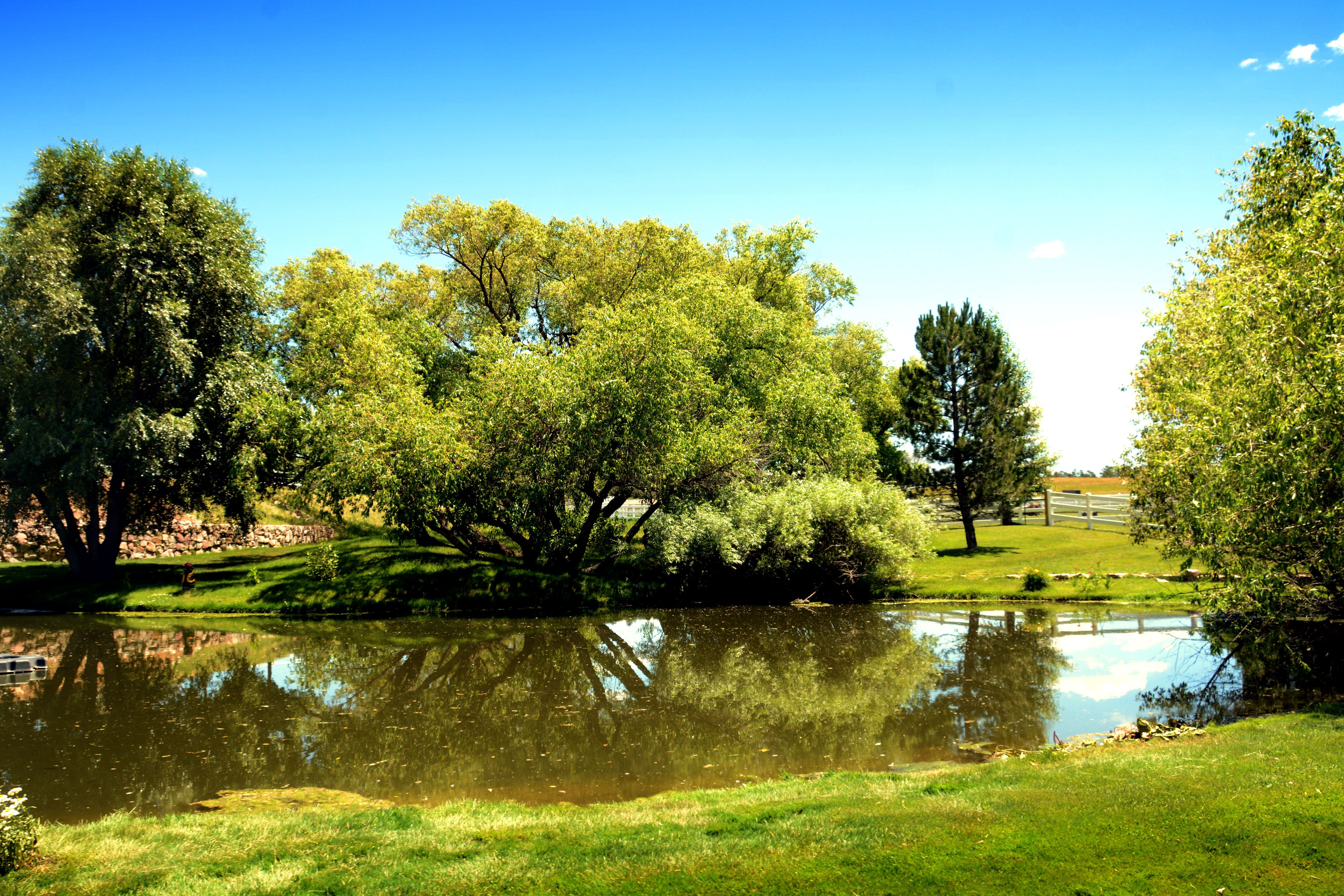
Did you know that Zoology is home to 21 domestic waterfowl? Our ponds are currently home to 4 Mute swans, 13 Sebastopol and Embden geese, and 4 ducks. Of course, the Canada geese and other wild birds also like to join from time to time. Having access to water is vital to all animals, but especially to our waterbirds. For these birds, our pond is how they keep themselves clean, maintain healthy feet, and exhibit natural foraging behaviors.
Ever heard of bumblefoot? Bumblefoot is a staph infection that can occur in the feet of many animals including geese, ducks, chickens, mice, and rabbits. Bumblefoot can be treated with antibiotics or Epsom salts, but if not treated can be fatal. The infection usually starts by the foot getting scraped, poked, or cut by walking on something sharp. Ways to decrease the likelihood of bumblefoot include monitoring and keeping the living area for the birds free of debris, fallen branches, trash, etc. A pond is also helpful as they are less likely to hurt their feet while swimming.
Water quality is another important factor of our bird care. Since many wild and domestic birds use our ponds, there is also a lot of feces and organic matter entering our water system. This organic matter can lead to high levels of ammonia and phosphates. Because of this, it is helpful to purchase a water testing kit so you can keep track of these levels. Normally, ponds contain certain bacteria that detoxify ammonia and phosphates. If the amount of the natural bacteria in your pond decreases or can’t compete with the level of toxins, you should think about purchasing an additive to replenish the natural bacteria and get your water levels back to a healthy state. Aerators, or as we call them-BUBBLERS, also help improve the quality of your pond by moving the water. Which can help decrease algae, unhealthy bacteria, and mosquitos.
Speaking of water…what happens in the winter? As mentioned before, we have aerators that move the pond water continuously. This does help keep our ponds open during most of the winter. But being in the beautiful state of Colorado means that we do get some negative degree days. When we get multiple in a row the ponds will freeze. Our staff is always aware of the upcoming weather. If we notice multiple days of severe cold ahead, we plan to catch all our waterbirds and put them in temporary housing, normally stalls, until it warms up and the pond unfreezes. This is to protect them from getting stuck in the ice or getting caught by predators such as fox, coyotes, or mountain lions.
Now we mentioned catching the birds. If a bird is injured or in need of routine vet care, how do you catch them? Since they can easily run or fly to the pond, out of reach, this can be tricky. What we have done to solve this is to create a high walled, fenced in area, where we have trained the waterbirds to come in for food. Each morning the birds know to walk into the feeding area and are used to being locked in while feeding. This makes it easy for us to hold or separate them when vet care or capture is needed. This has been one of the best things we have done to improve our care for these animals.
These birds add to the diverse beauty of the property. Although beautiful, I would not touch. Many of the geese have decided they are guard geese and will readily chase you away from their home! They’re not always nice to each other either. Just like with any animal, the staff at Zoology keep a close eye on how the flock is interacting with each other every day. If a bird is injured or unwell, we need to separate them right away. Otherwise, it is a natural instinct for the others to go after them in order to get rid of a weakling within the flock that could attract predators. Many times, once the bird is healed, we can reintroduce them to the rest of the flock.
At Zoology, we are continually learning to better the care we provide to animals. We will continue to share what we know and love when you reach out and do the same! As always, feel free to contact us if you have any questions about your own water birds. You can contact us here: https://zoologyfoundation.org/contact-us/ I can’t guarantee we will have the answer, but we are happy to share our experiences and resources!

